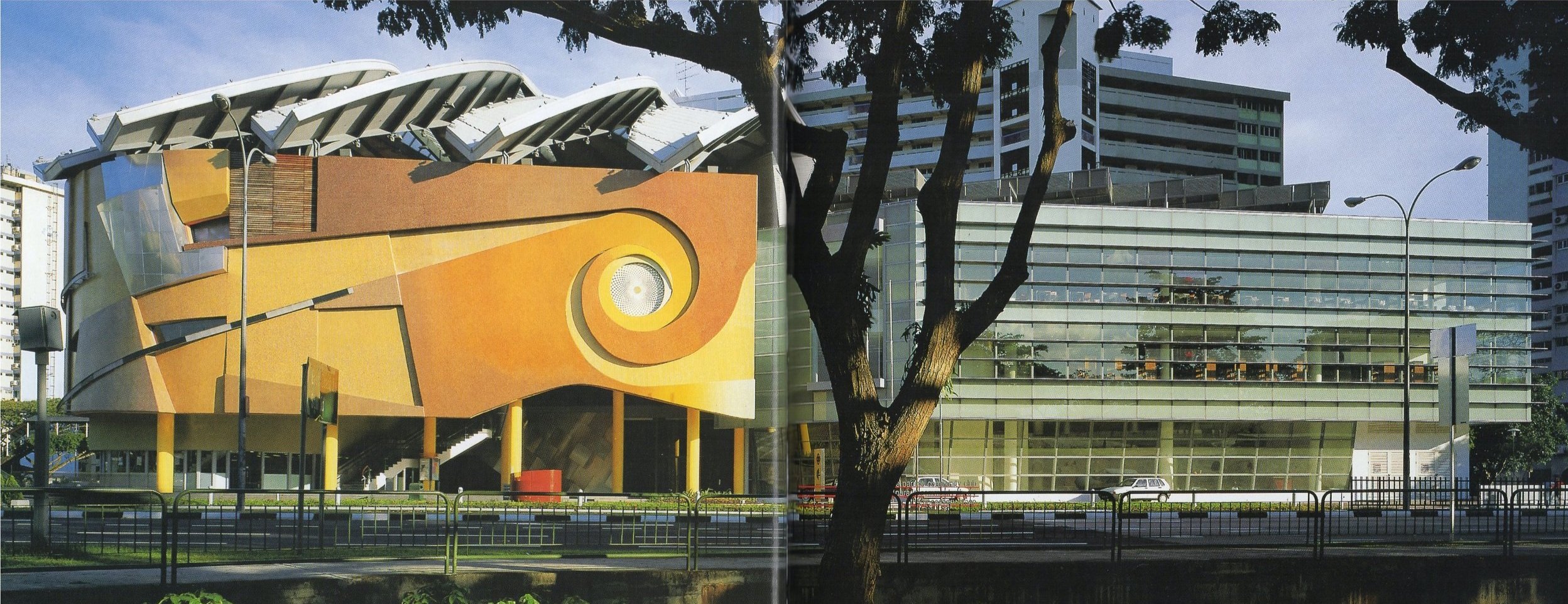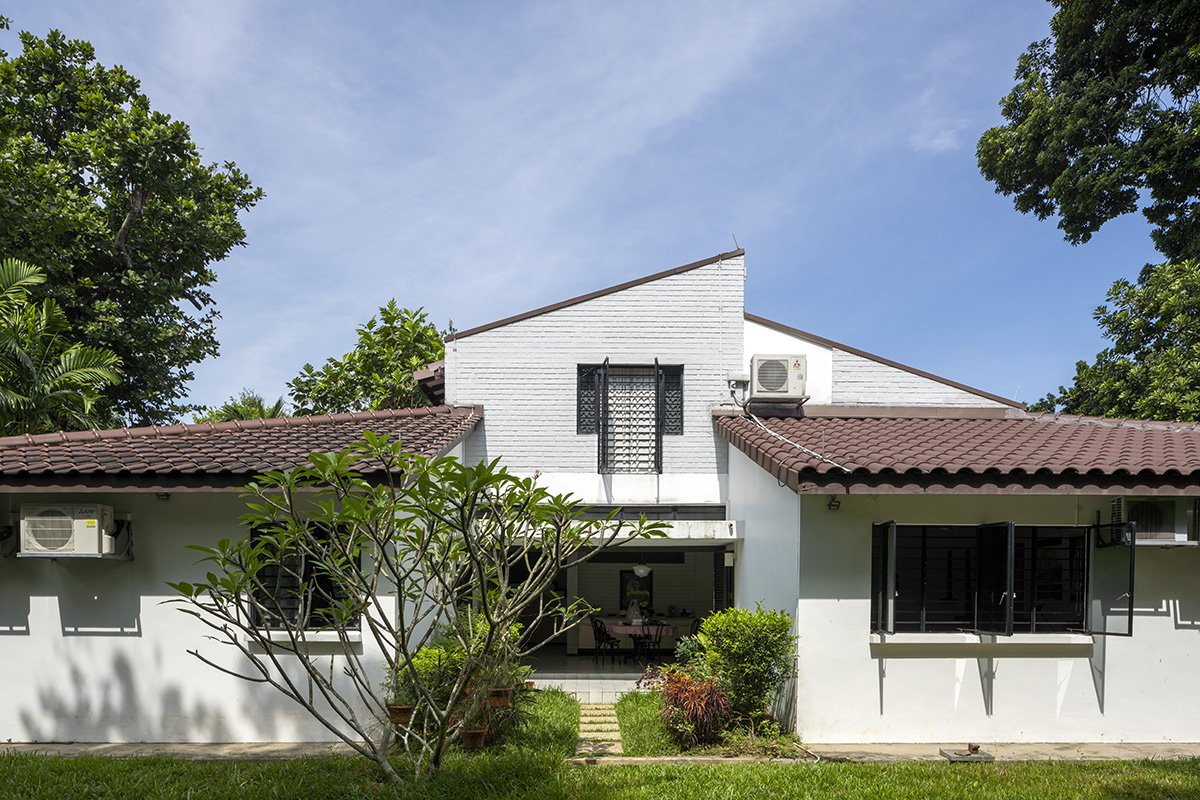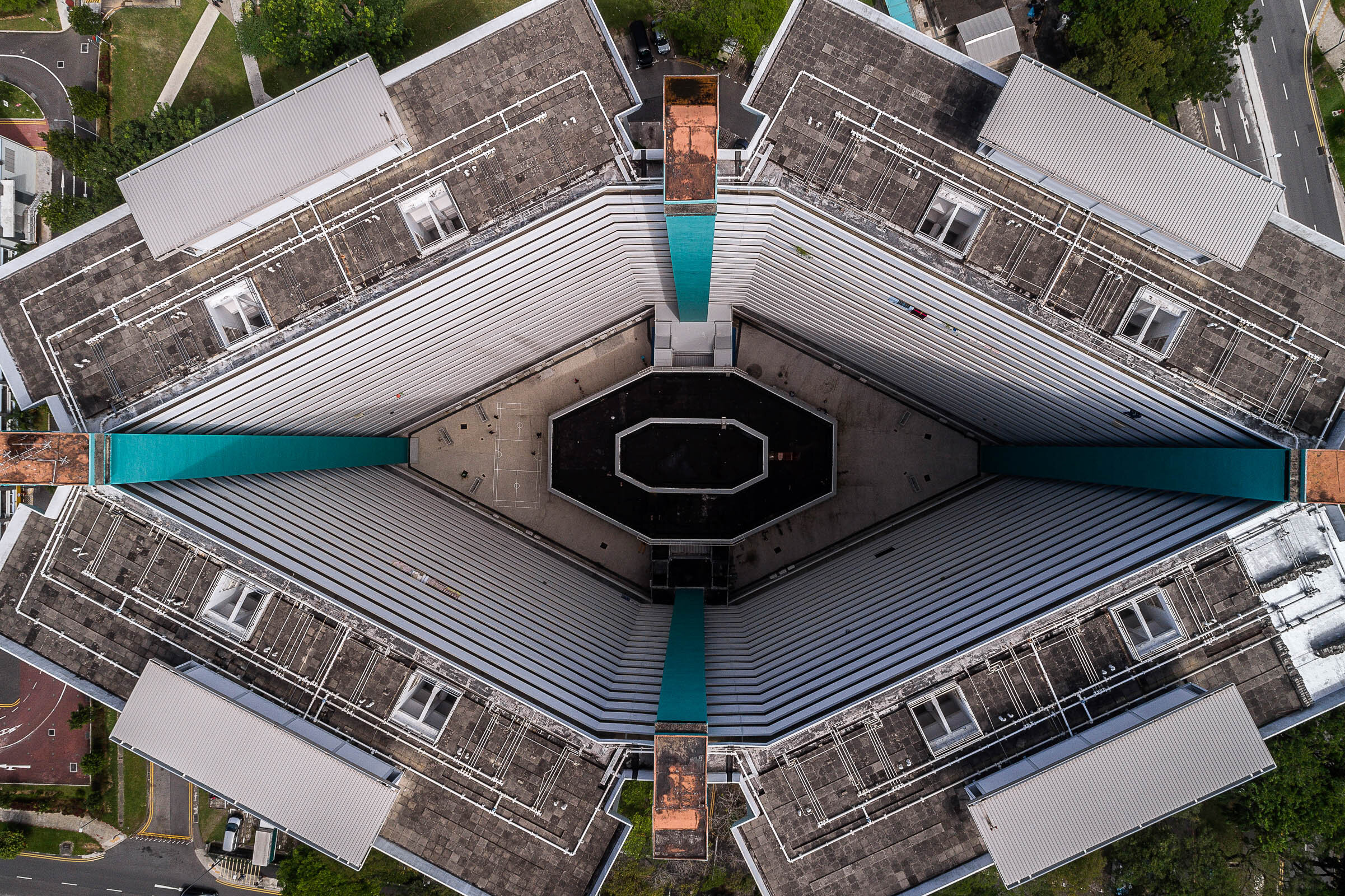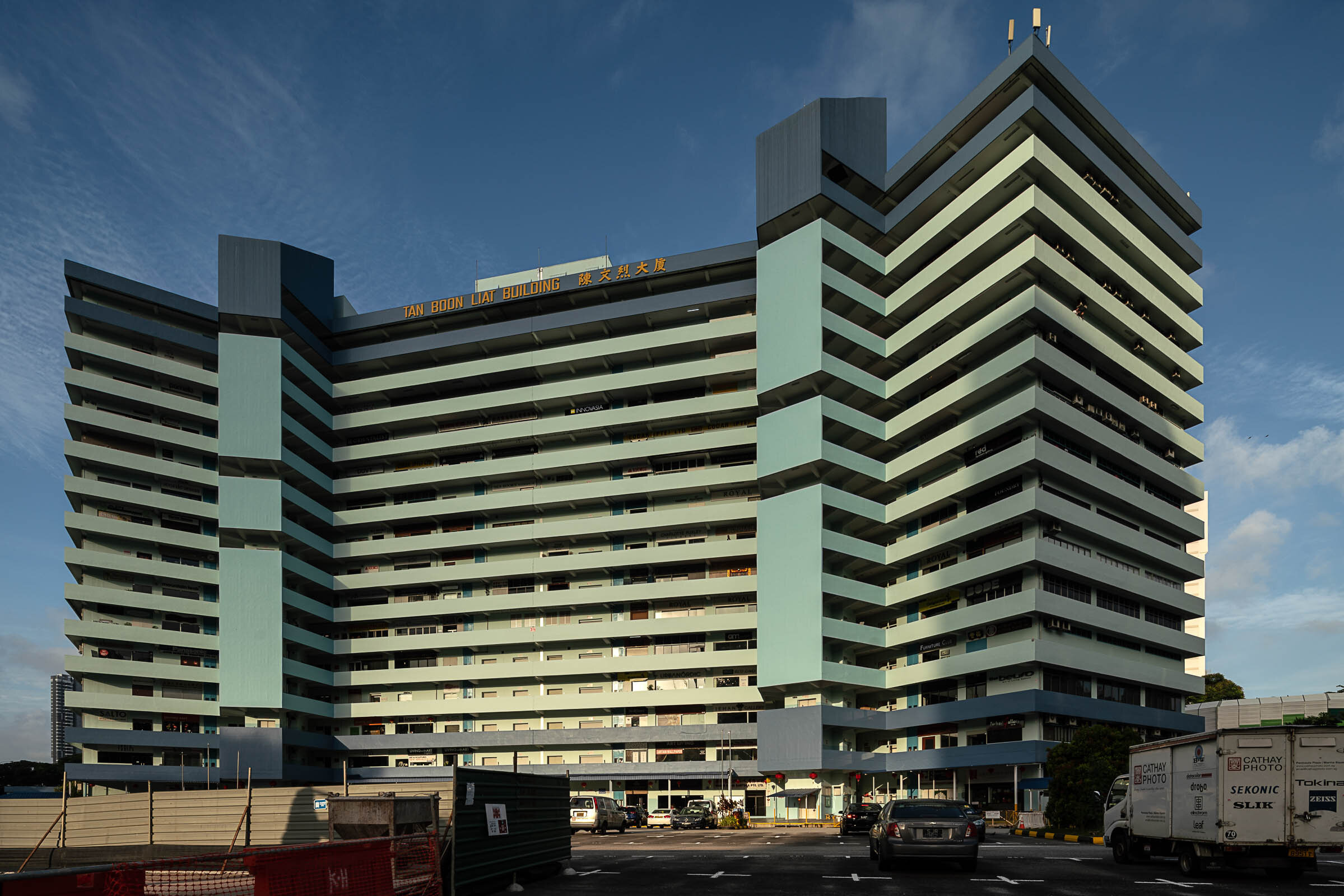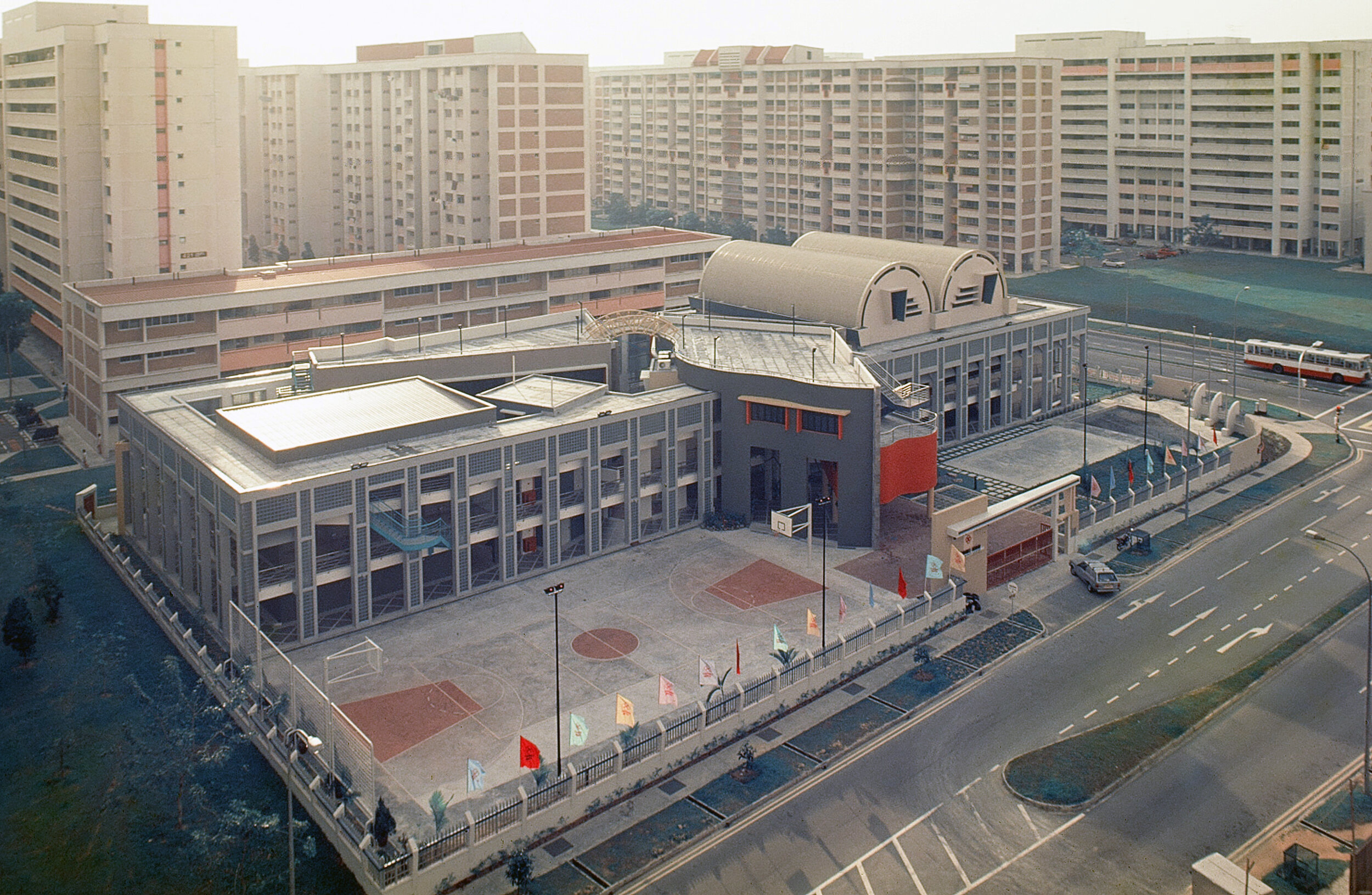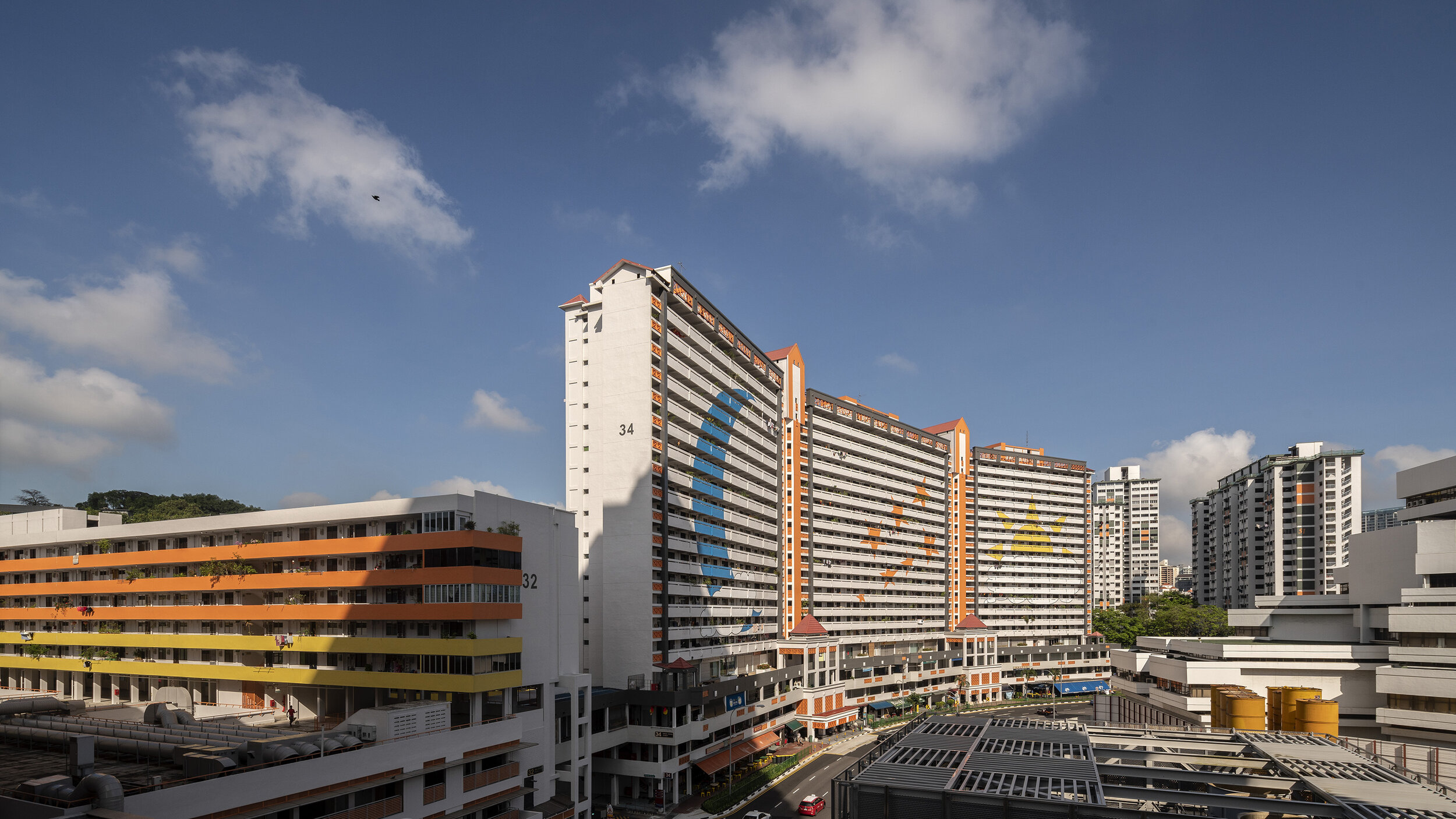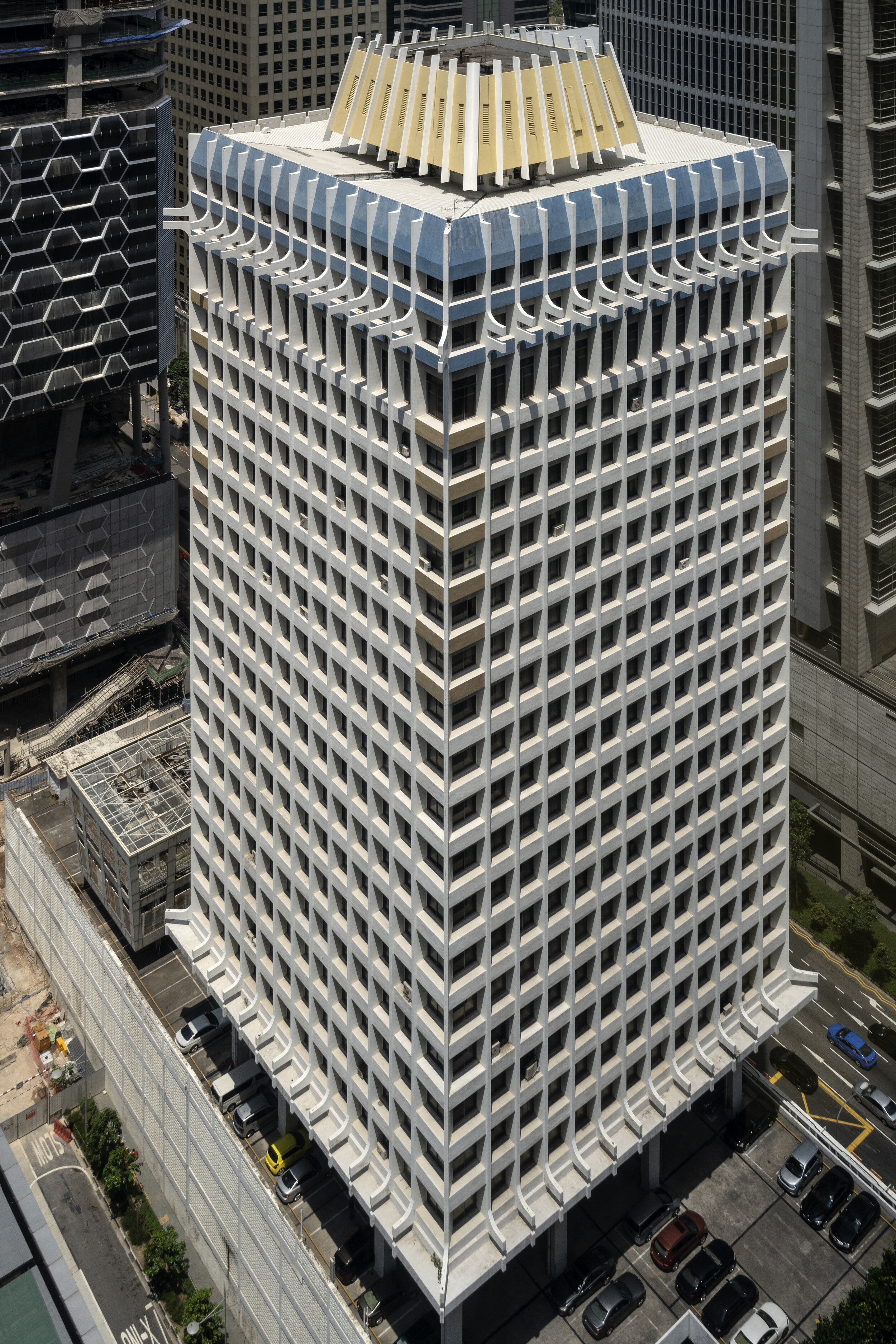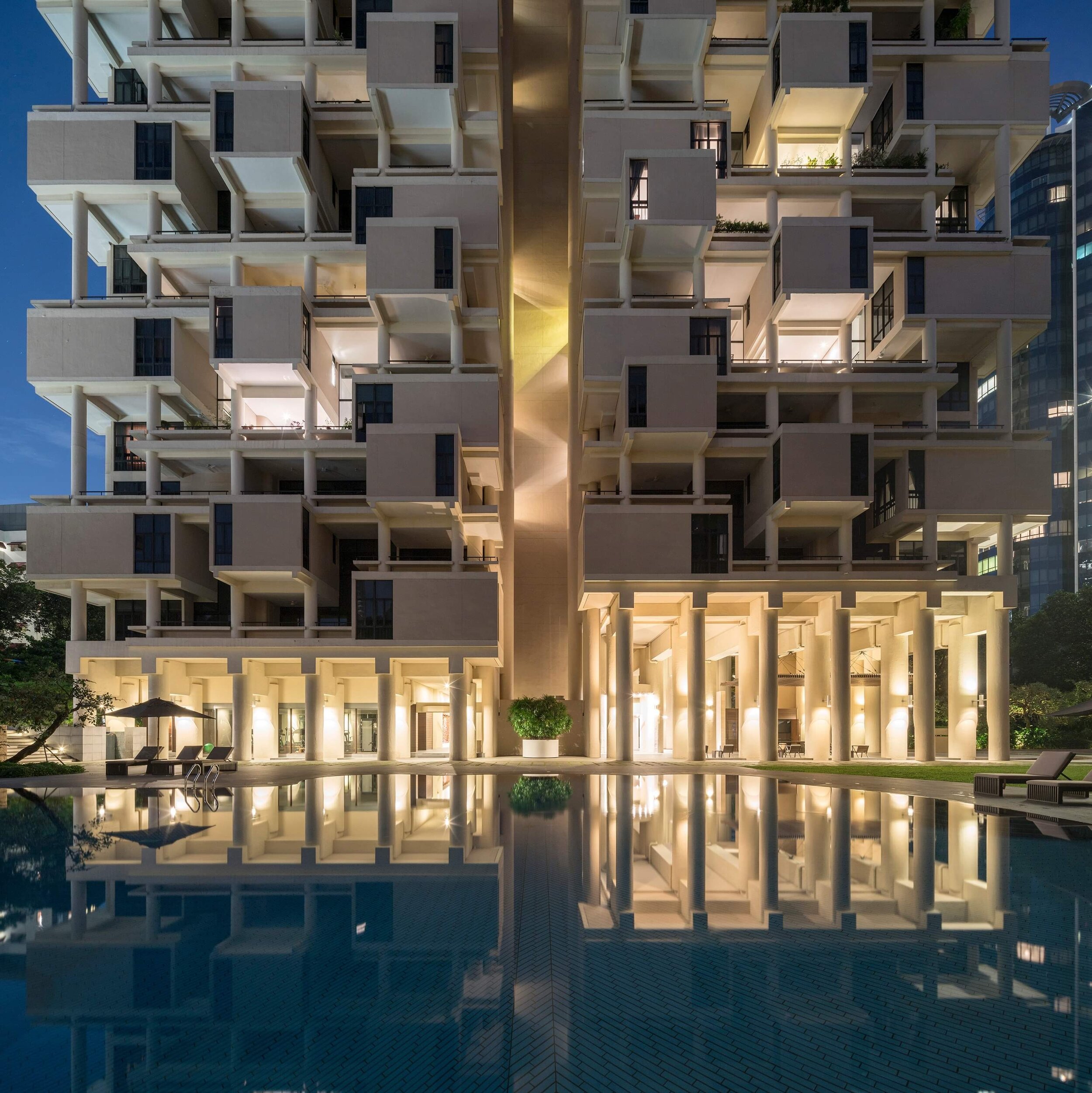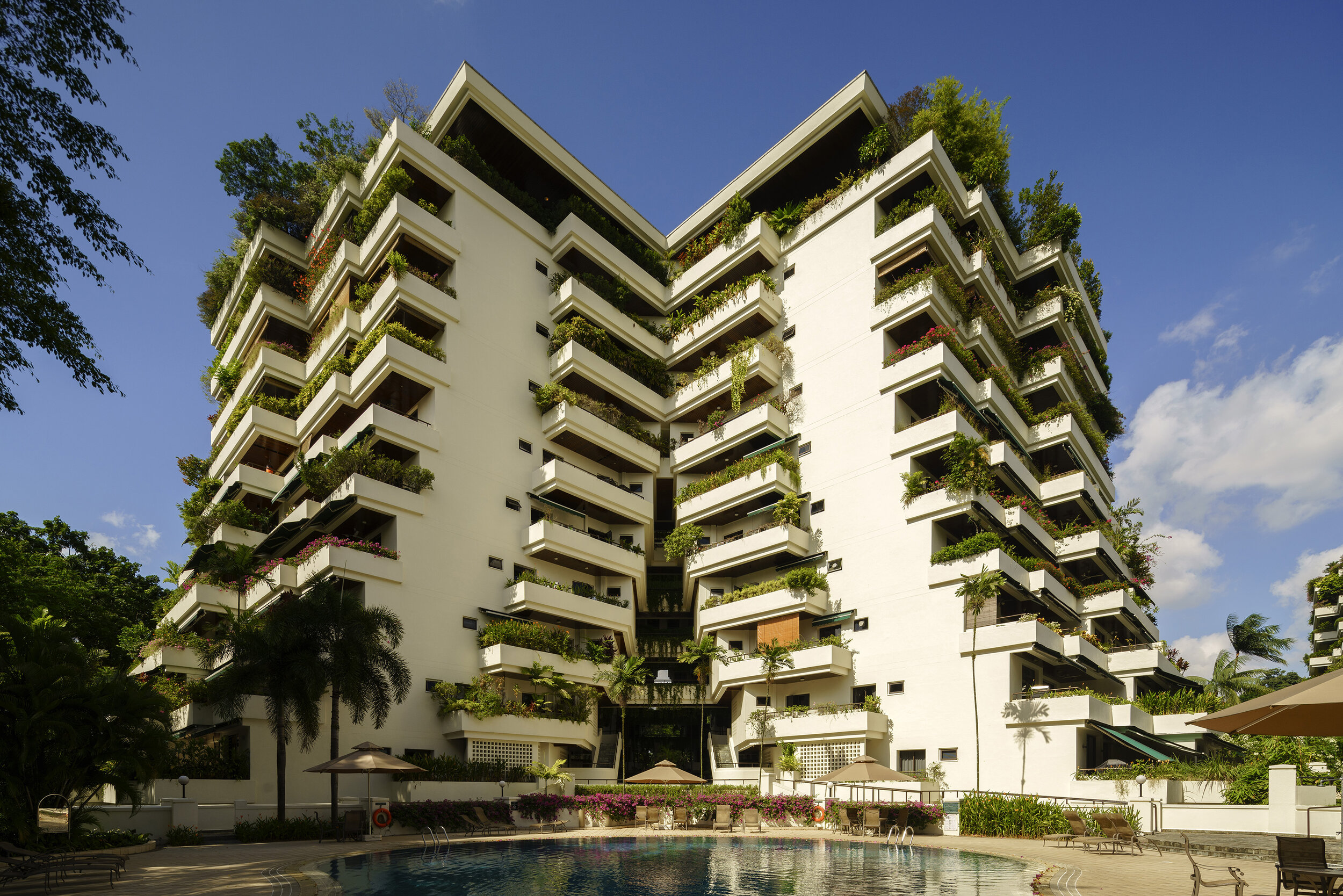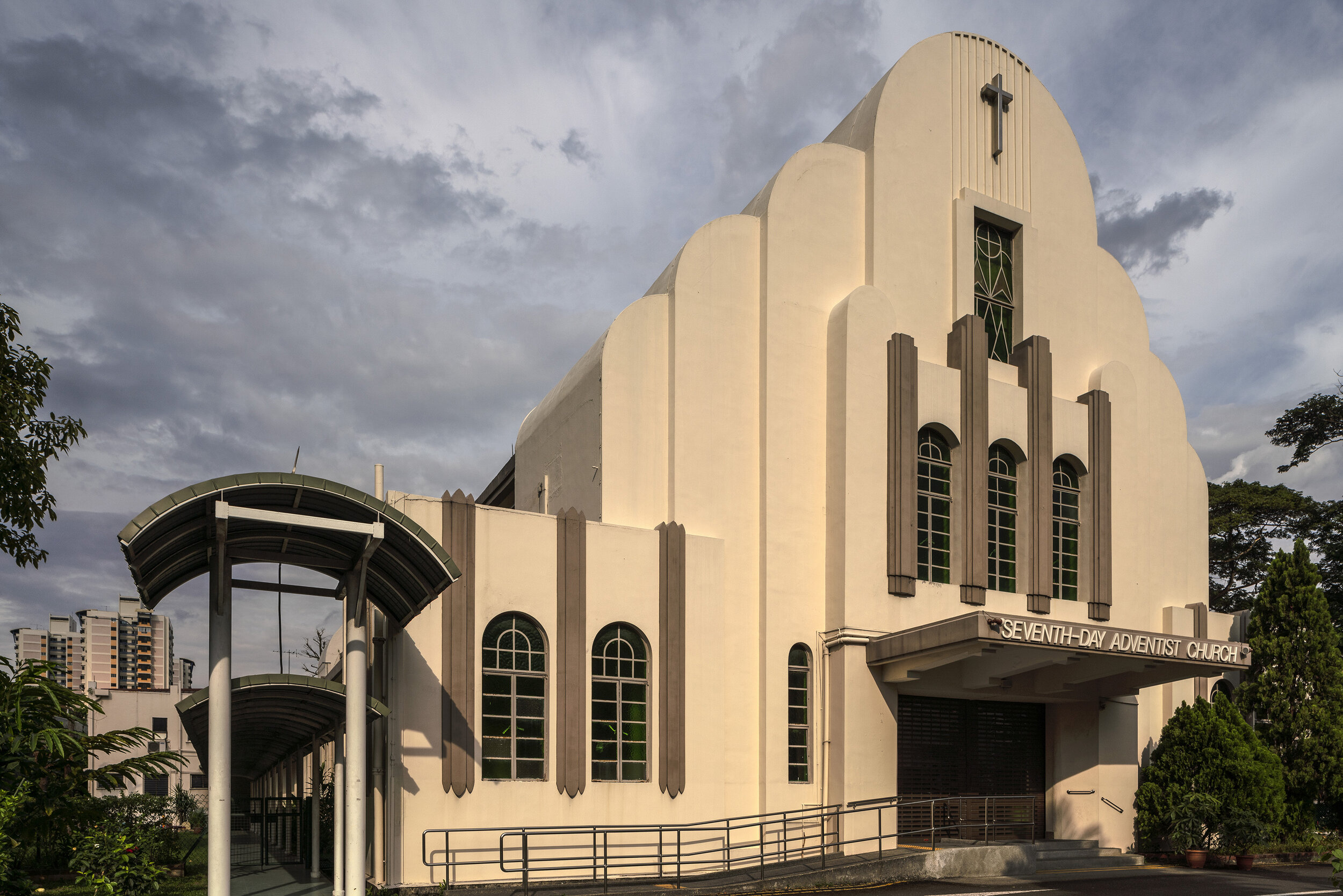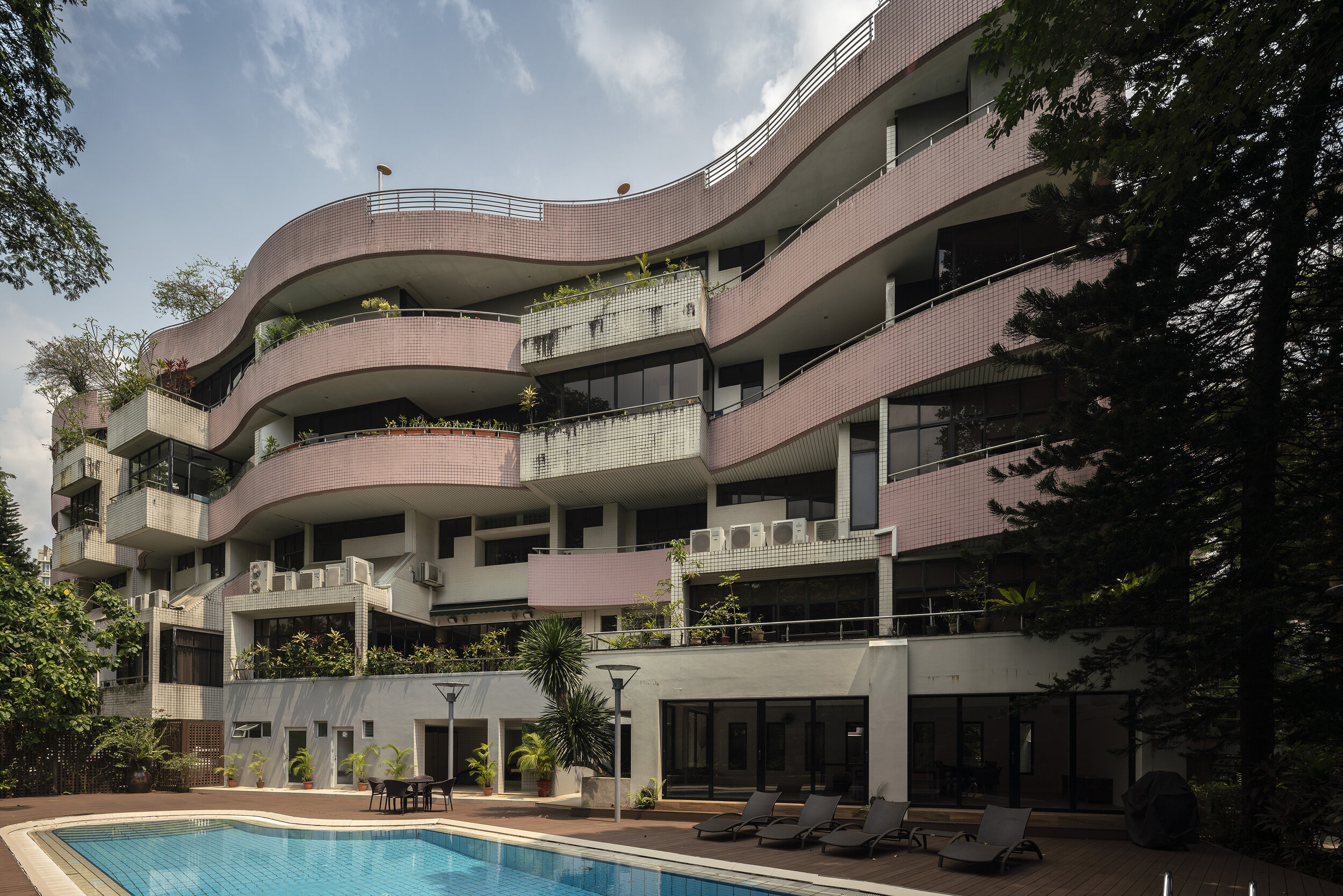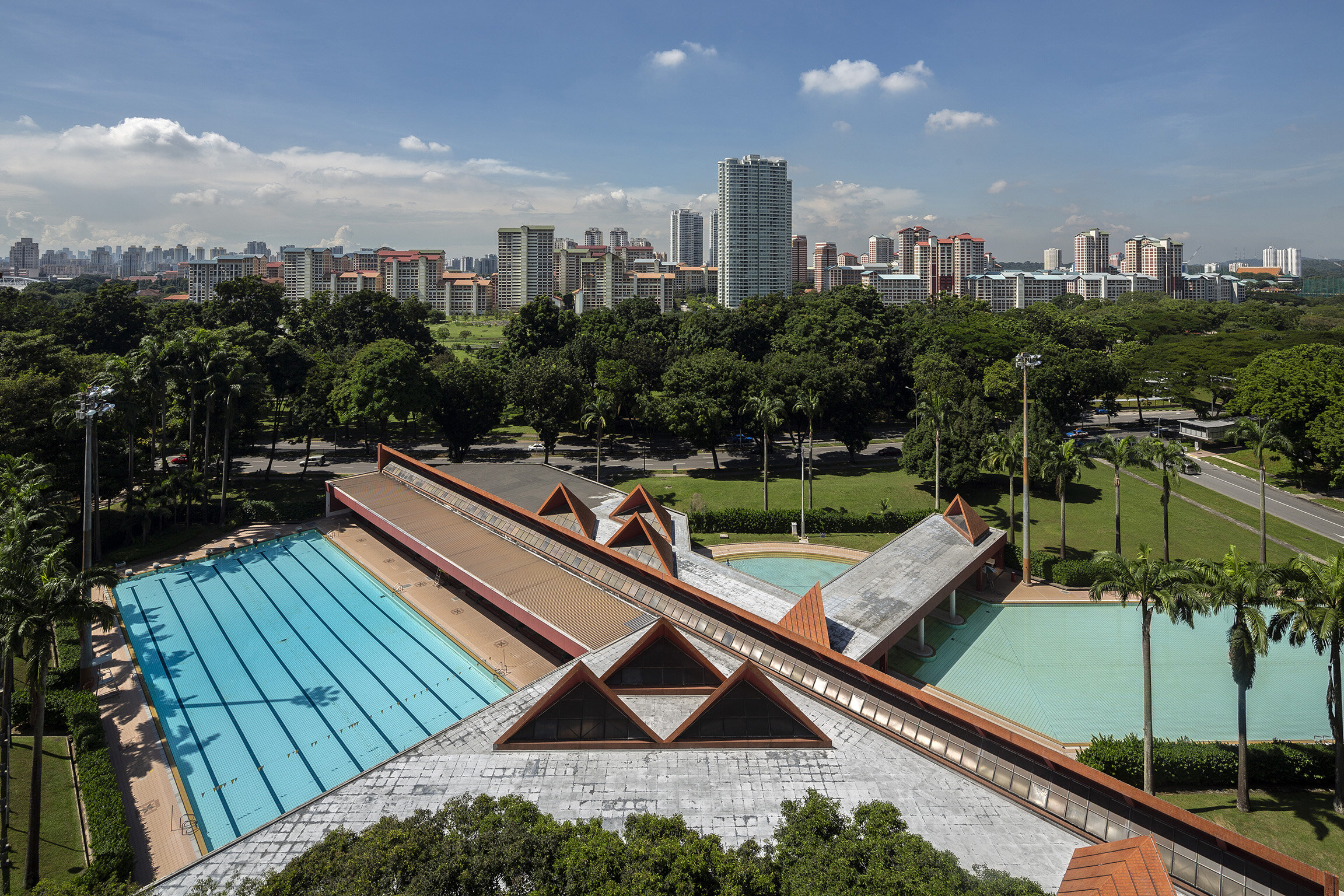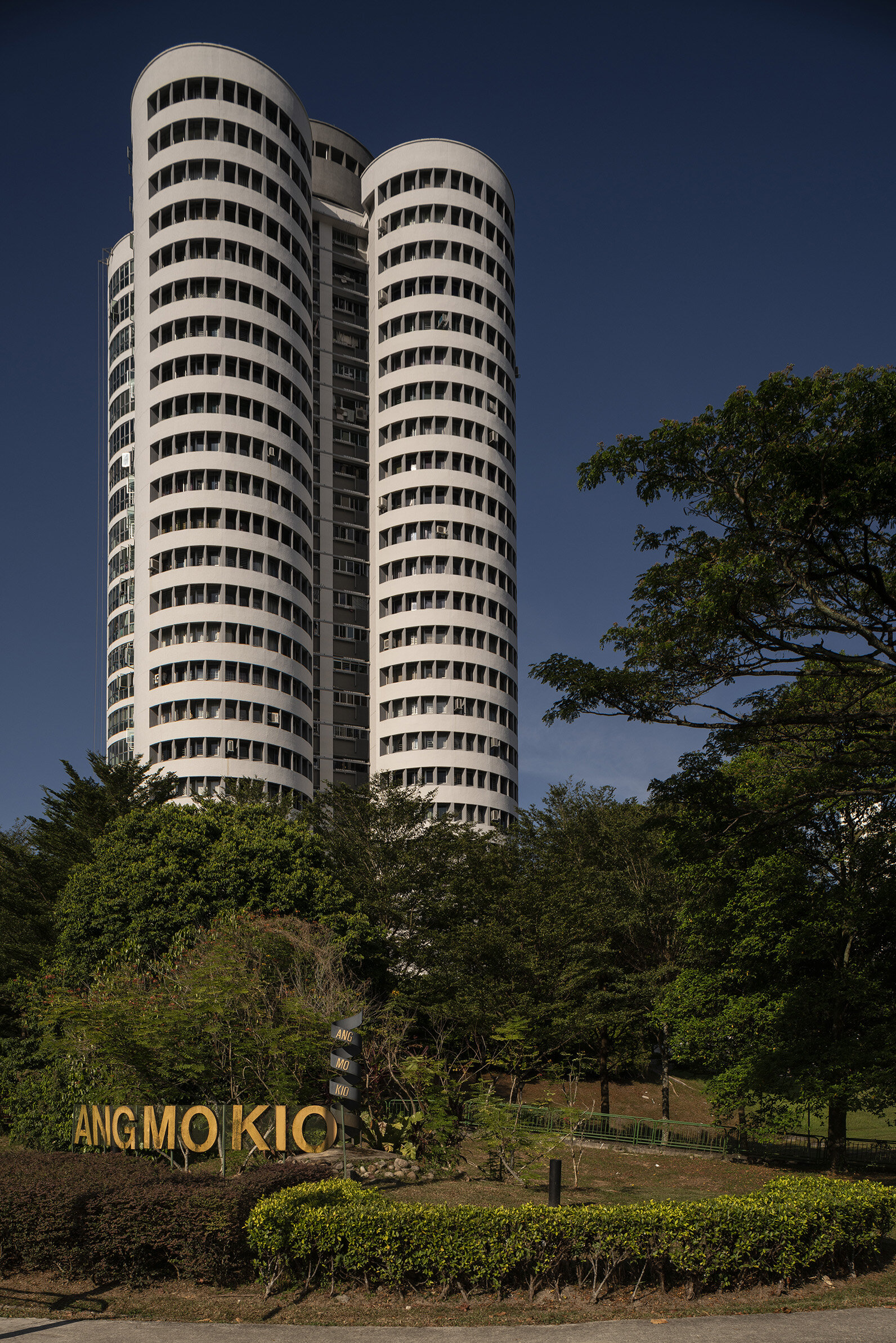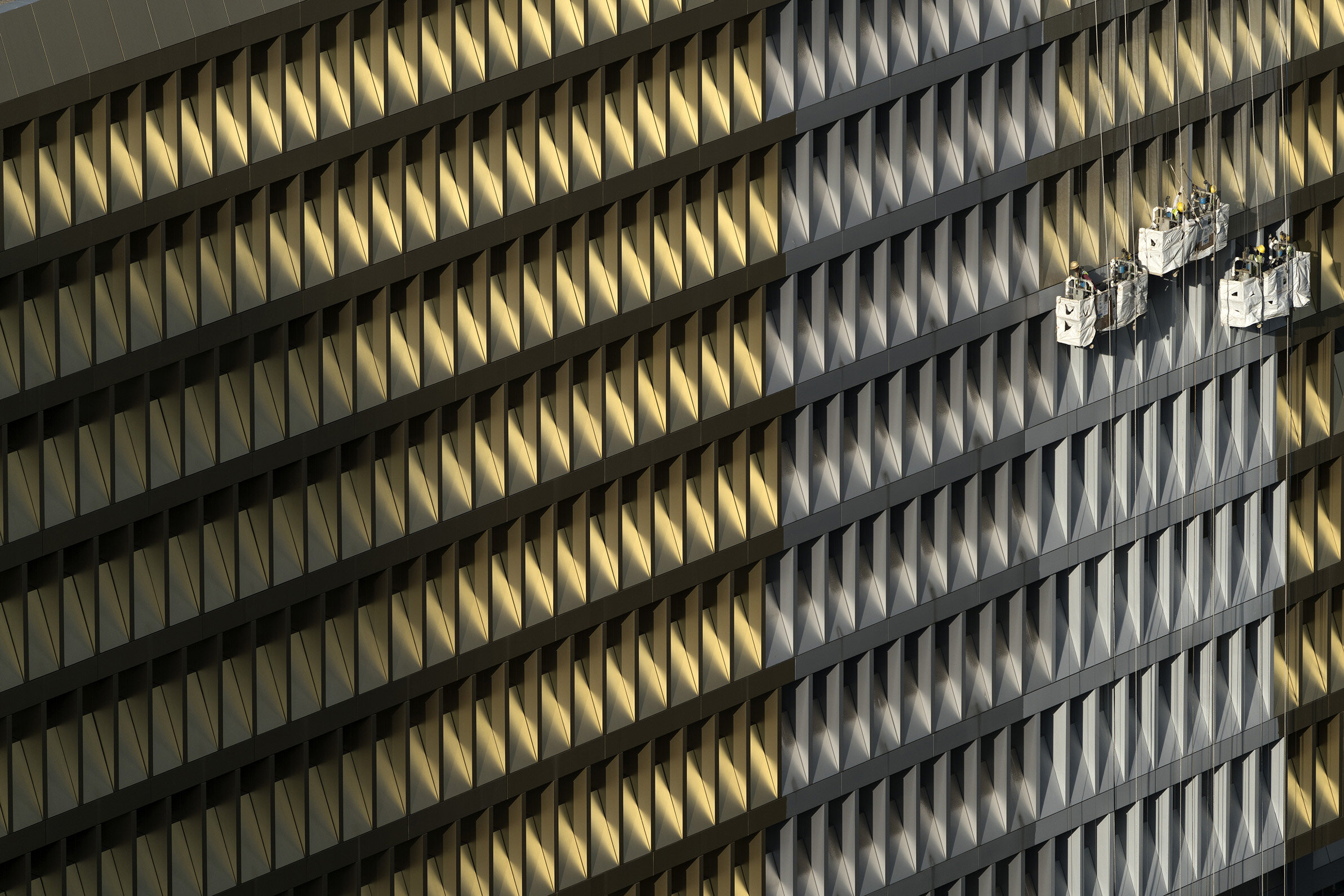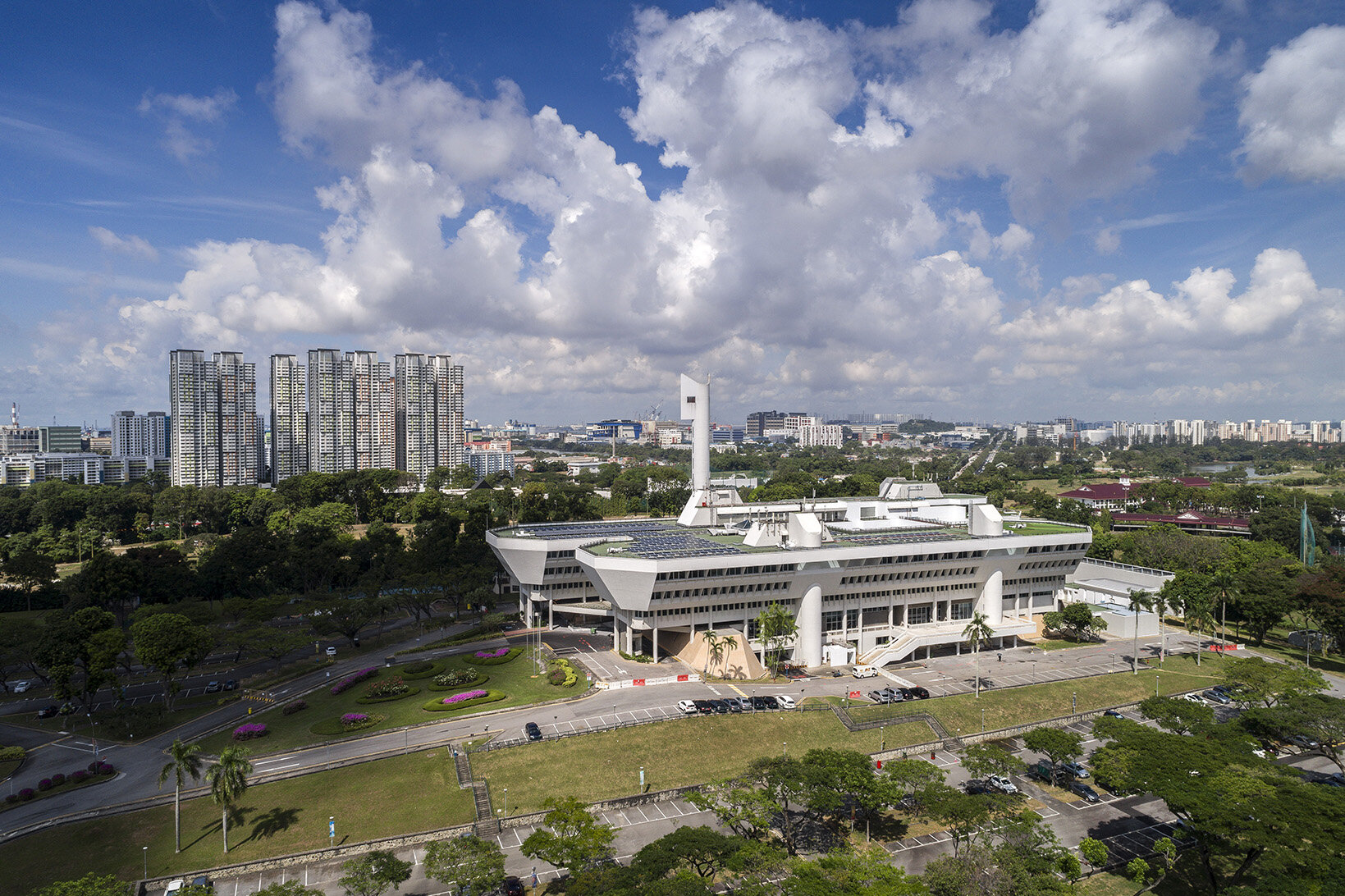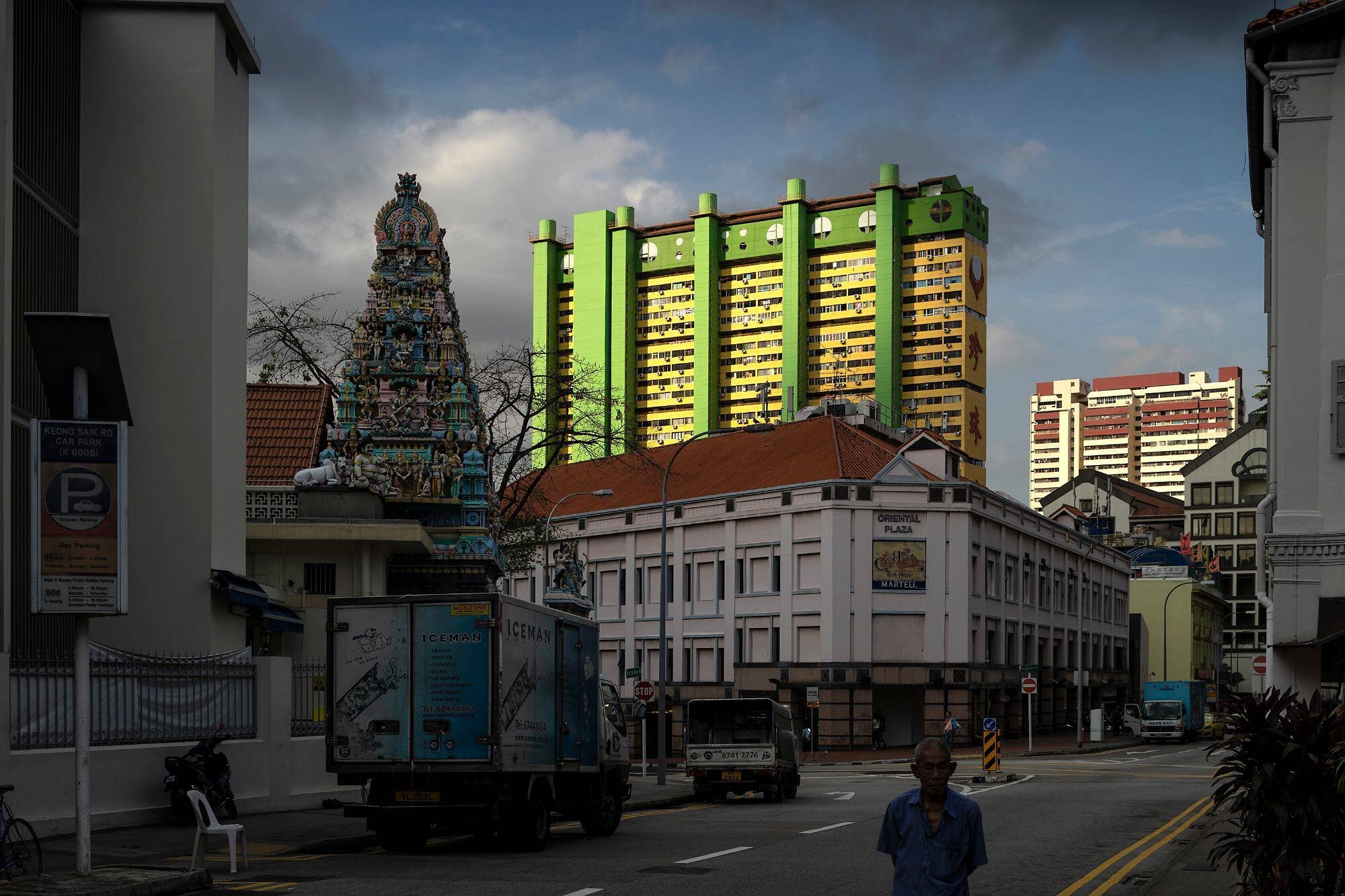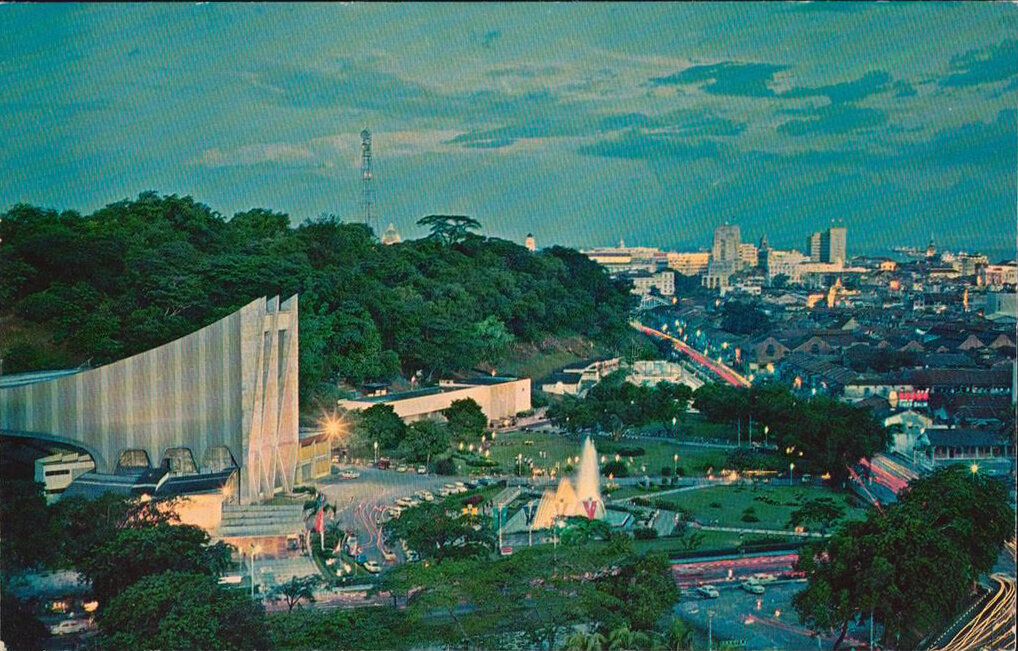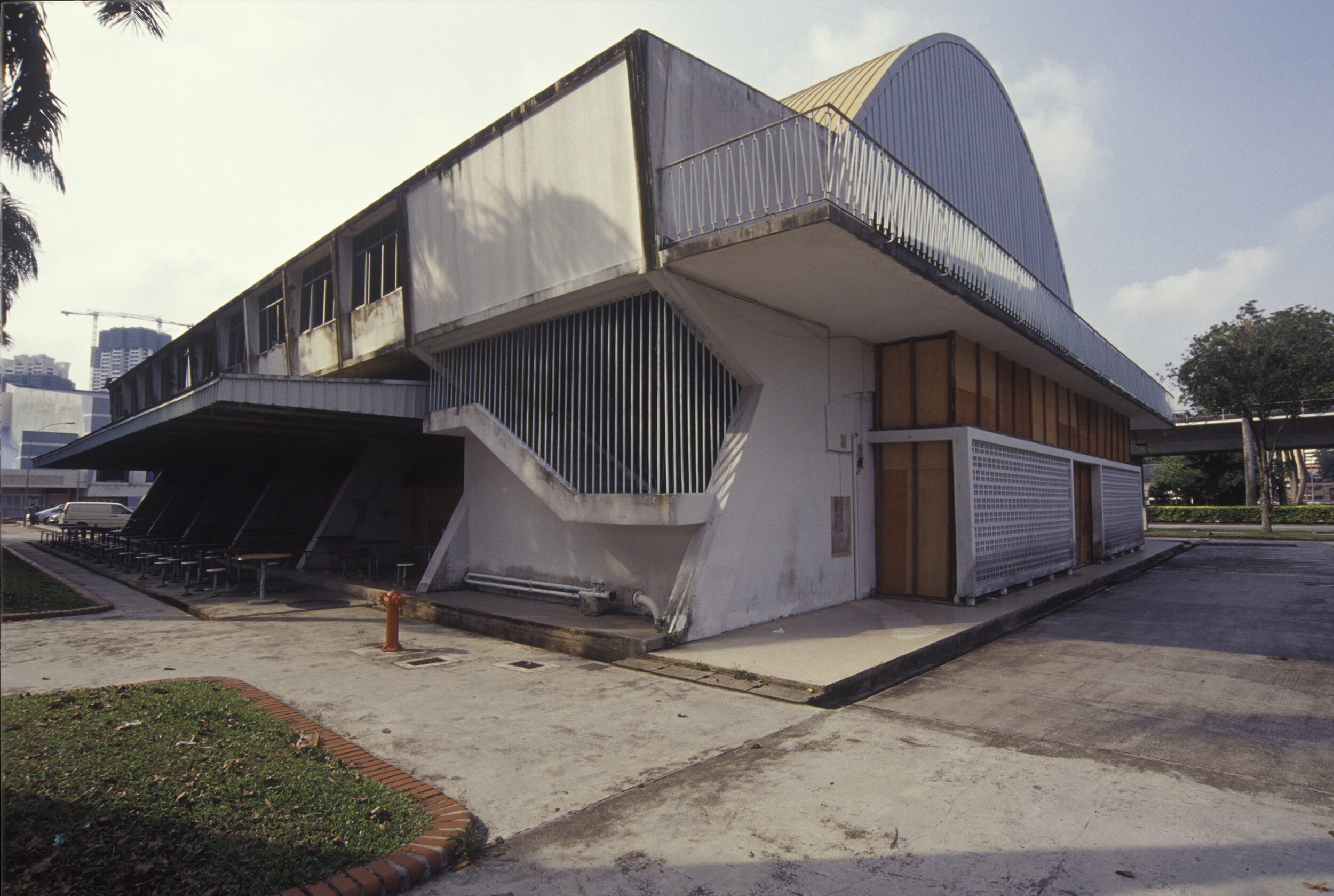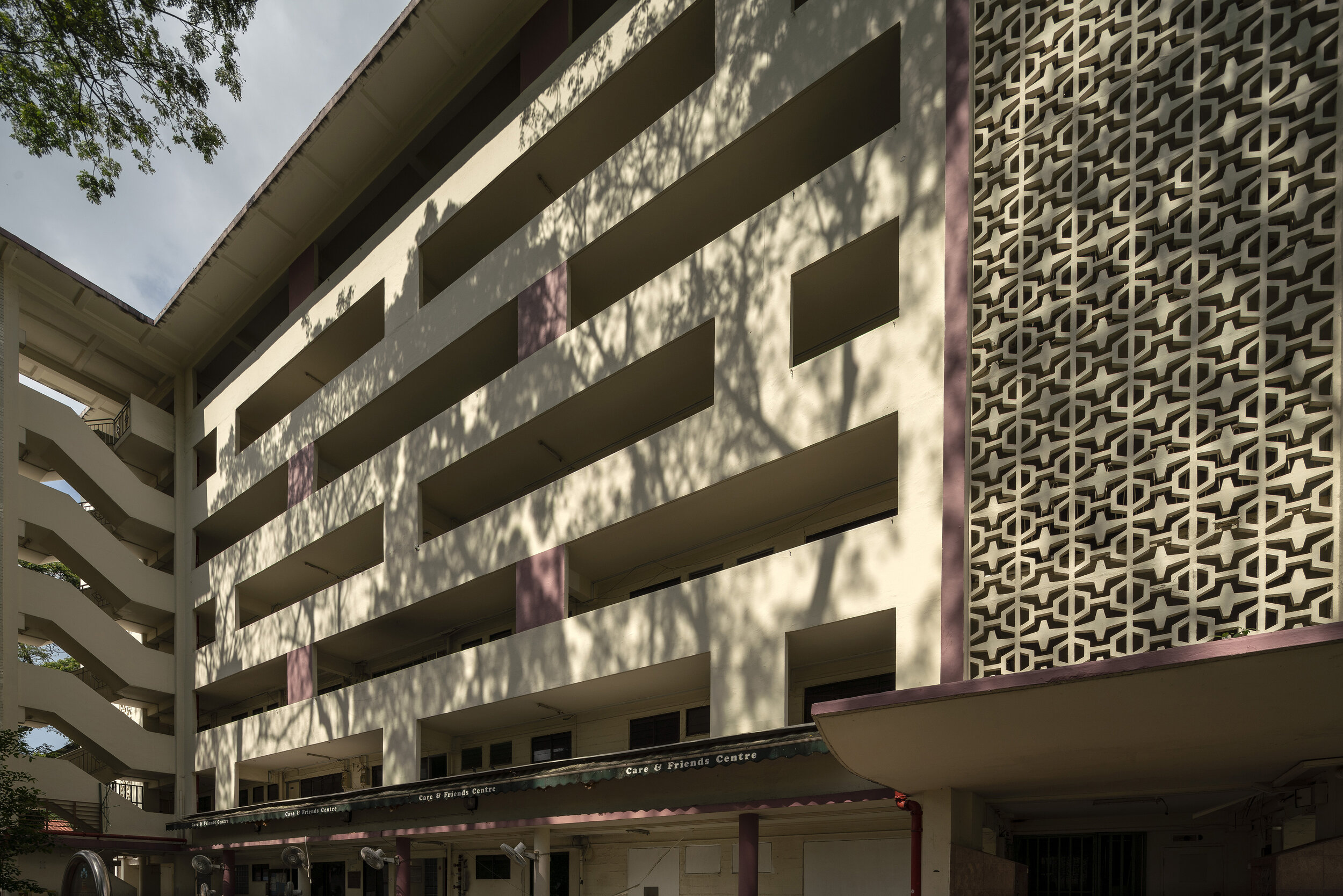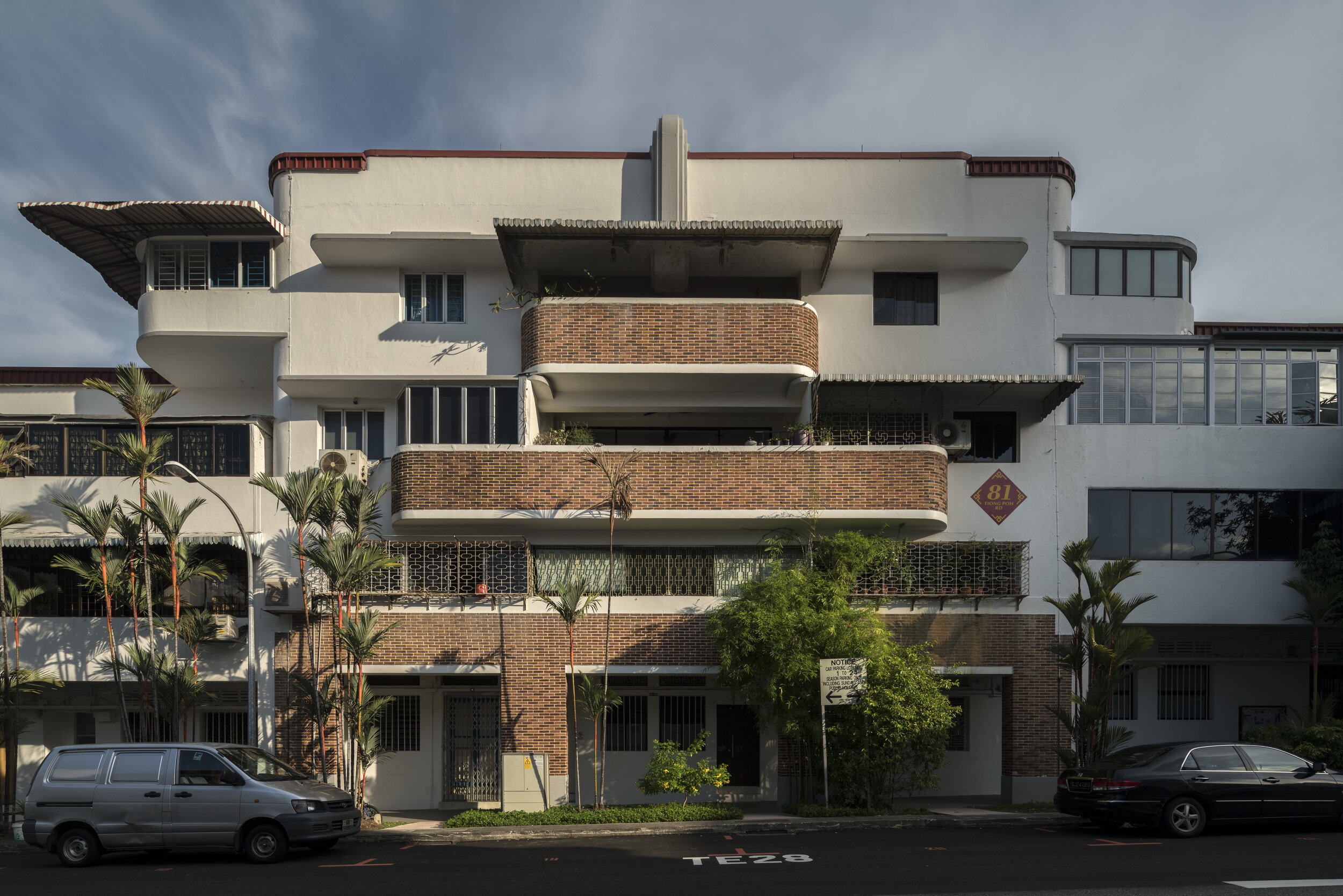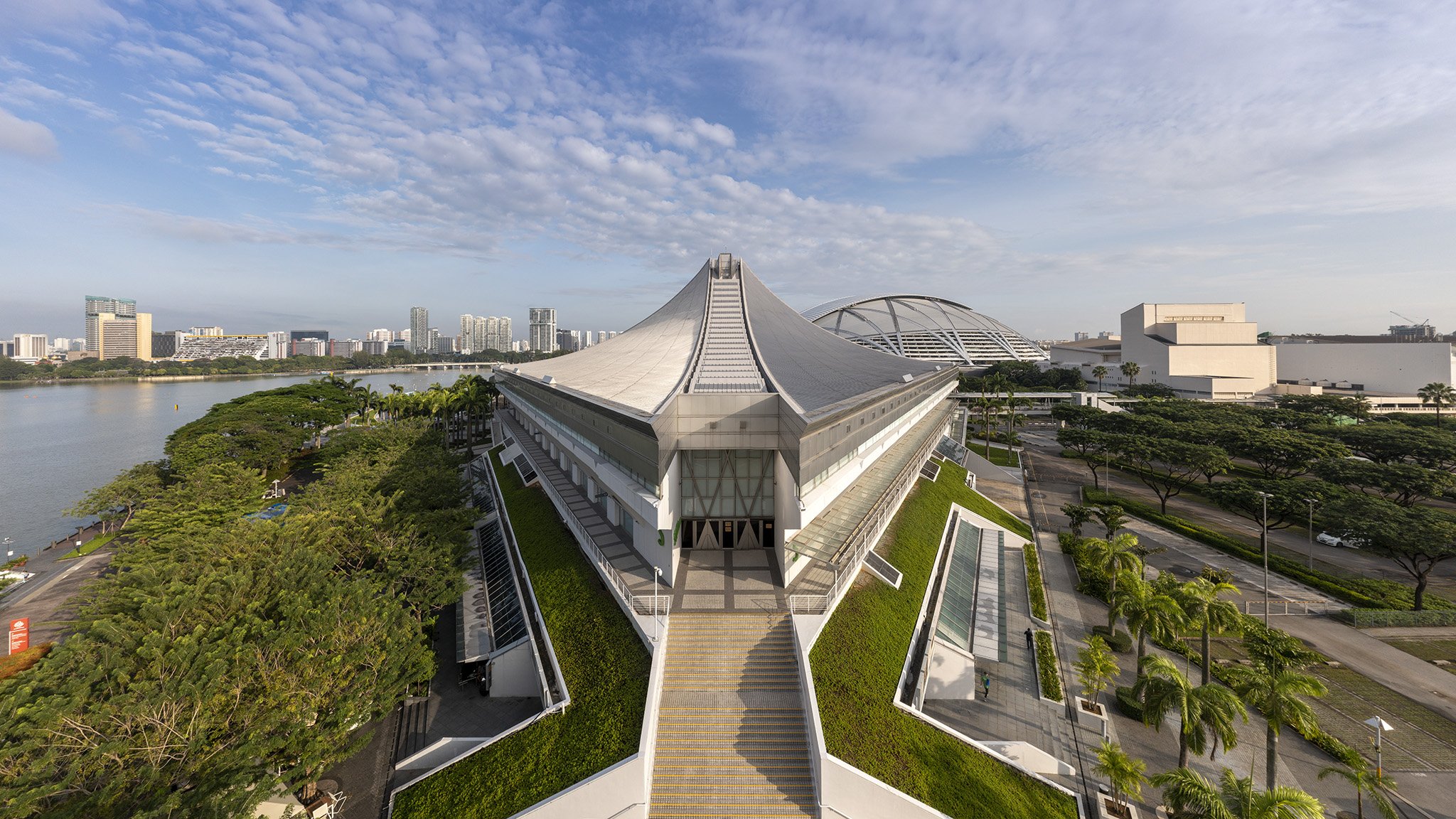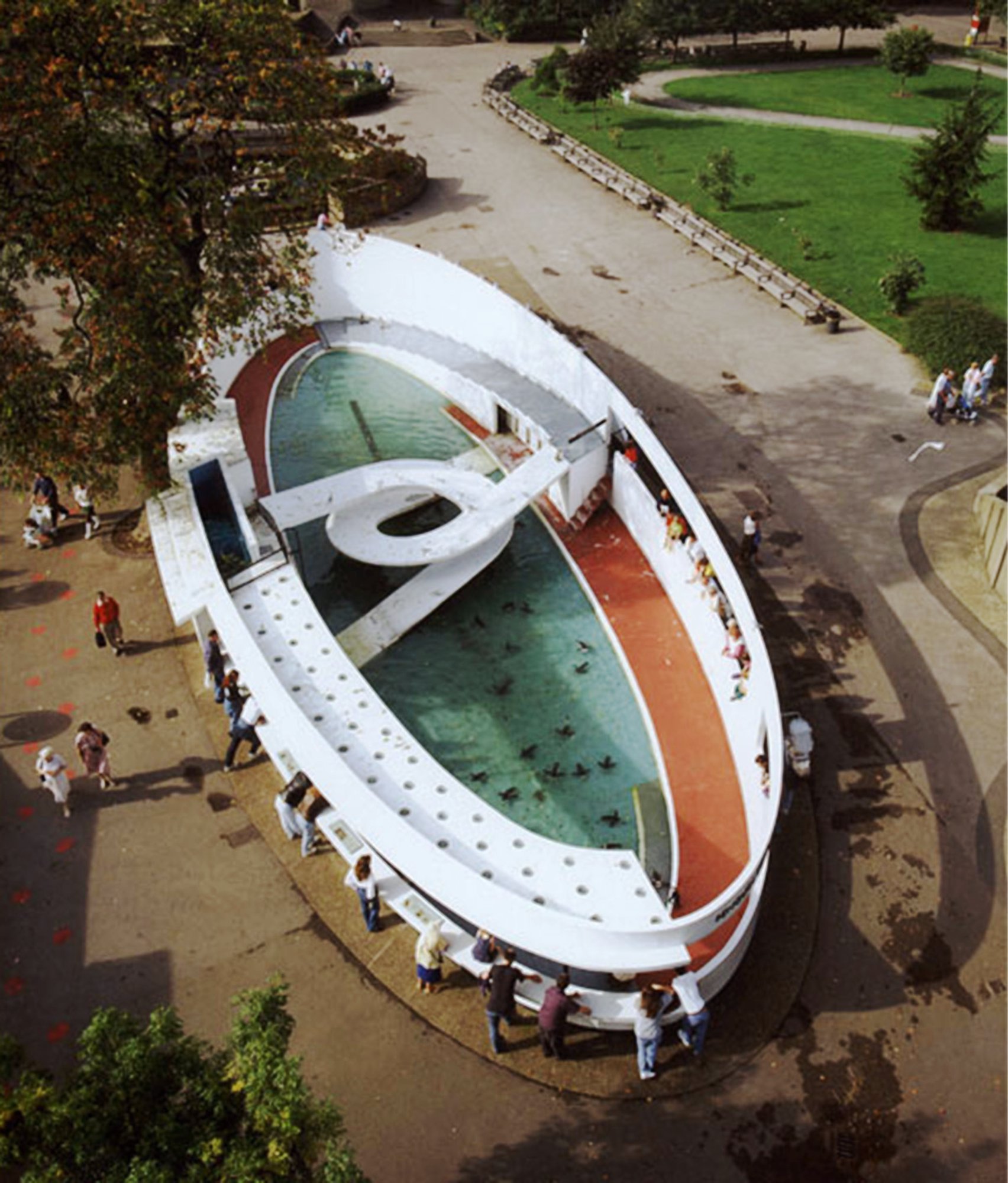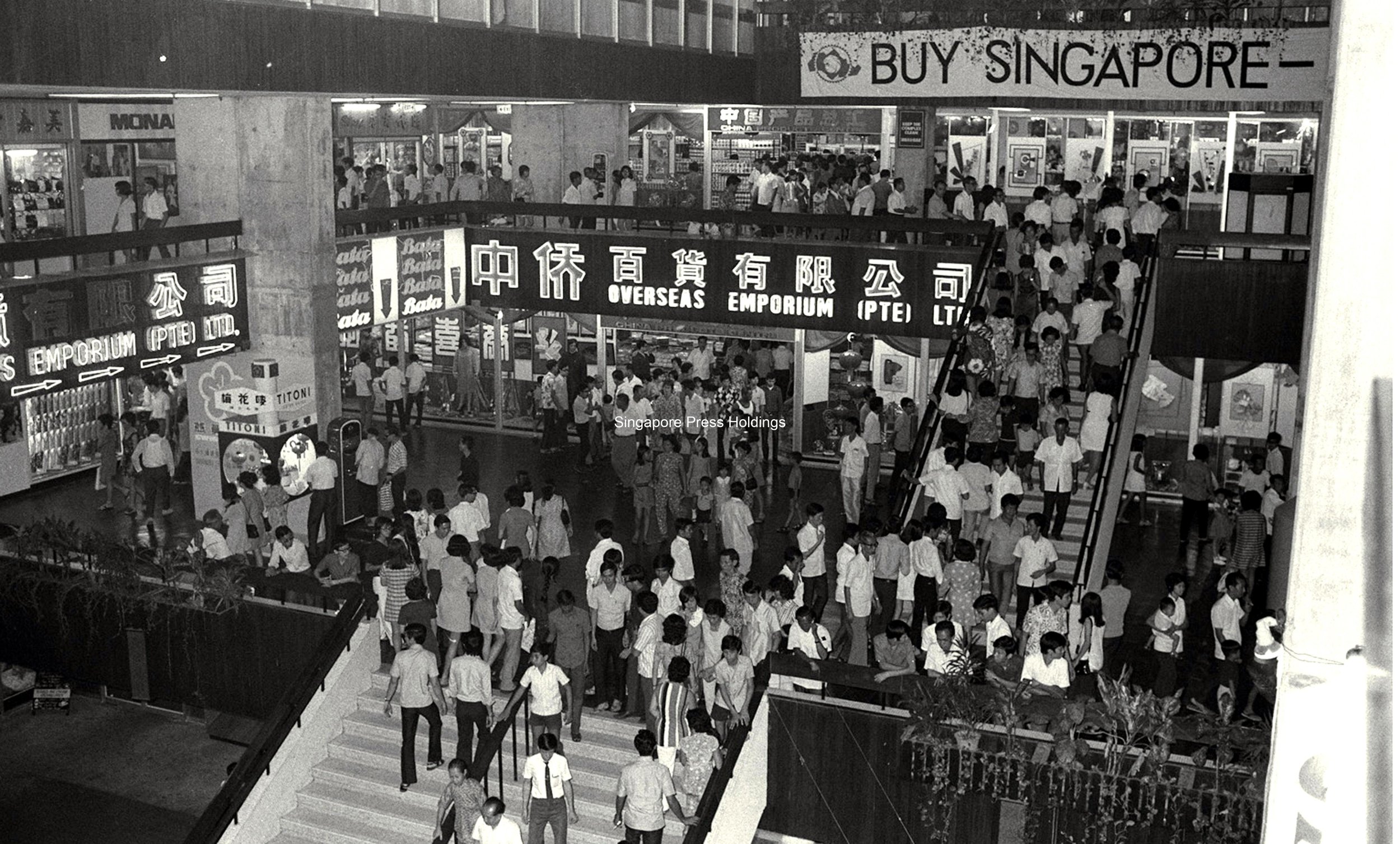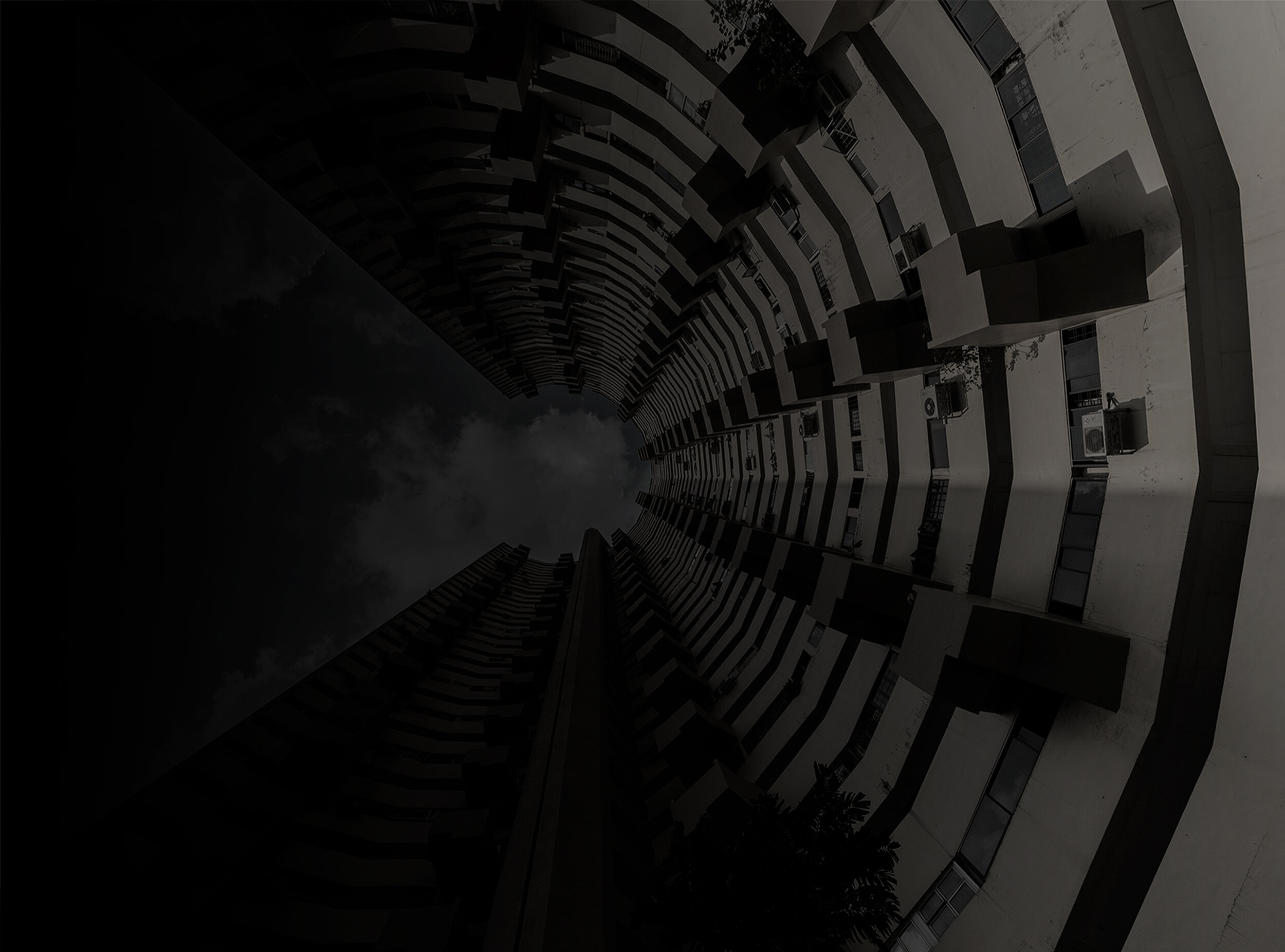
Progressive Once More.
Rejuvenating Modern Architecture in Singapore.
Started in Einhoven, Netherlands in 1988, Docomomo International is a non-profit organisation dedicated to the documentation and conservation of buildings, sites and neighbourhoods of the modern movement. This Singapore Chapter is now formalised. Learn more >

The buildings that represented the first phase of our urban renewal can now also be considered heritage icons in their own right.
— Desmond Lee, Minister of National Development, 2019
Modernist 100.
There is a large number and great diversity of buildings in Singapore that can be considered as modern. By modern, we are referring to not just architectural aesthetics but also constructional and environmental techniques, socio-economic processes, cultures, and political rationalities. The quantity and diversity are rooted in Singapore’s short but vibrant history variously as a colonial port city, a post-independent developmental state, and a contemporary global city. In this short introduction of the inventory list, we provide a brief sketch of how the shortlisted modernist buildings help to bring this rich socio-cultural history to life.
“Today, we are at another juncture in our conservation journey – the buildings that represented the first phase of our urban renewal can now also be considered heritage icons in their own right. Many of these are large, mixed-use complexes built in the 1960s and 70s. Many were ground-breaking in their design, were conceptualised by local architects, and were constructed by our local builders. Collectively, they embody the ambition and energy of a newly independent nation. They stand as reminders of our turbulent and progressive years, when Singapore first forged a future for ourselves.”
Latest News.
Our one stop hub on latest information, events and happenings about everything modern in Singapore and the region.
Docomomo Chair Ho Weng Hin and Exco member Ronald Lim presenting Mrs Lena Lim a printed copy of Docomomo Singapore’s Position Paper on the People’s Park Complex, as a token of appreciation for the generous donation.
Why a Precinct Improvement Plan (PIP)?
The first is to overcome the limitation for the expansion of the PPC and to incorporate future developments into an overall framework that extends the original design ideas found in the building.
Second, adopting the dual strategy of conservation and redevelopment that takes into account overall management at the precinct level carries with it a number of advantages or benefits, as outlined below.
Third, adopting a PIP approach allows a great design idea – the ‘City Room’ strategy’ – to be extended at the urban scale in the precinct level.
PPC boasts several connections and stitching to its surroundings which can be improved. This increased connection supports the legacy of PPC inverting the “introverted” shopping centres of the past with pedestrian entrances on all sides. PPC has the potential to become a node for on-going efforts to transform Pearl’s Hill neighbourhood.
We can take this opportunity to restore the original public and civic nature of the adjacent pedestrian mall - which has since lost this quality. Image c. 1976 vs recent image on the right.
Incentivising the conservation of PPC may springboard from the incentives offered by the Ministry of National Development (MND) in 2021 to gazette Golden Mile Complex (GMC) for conservation.
A centrepiece of the country’s first urban renewal zone, PPC was a significant update to Chinatown’s urban environment and provided the people with a cleaner and more manageable space for mercantile activities.
This reflected the state’s growing pursuit of liveability. The focus on providing vibrant urban spaces materialised in the form of the City Rooms, which were the first of its kind.
The Summary Statement of Significance presents 3 aspects - Architectural, Urban & Historical and Social, under which the values of PPC are showcased.
This introductory essay provides an overview of the multiple ‘histories’ of People’s Park Complex (PPC): the birth of People’s Park as a key social space in colonial-era Singapore’s Chinatown, and later, its evolution into a bustling commercial space as ‘zan zyu baa saat’; the post-independence, state-led ‘urban renewal’ programme which precipitated the ‘rebirth’ of People’s Park alongside comprehensive redevelopment of its surrounds; and the architectural development of PPC as a new modernist nexus for Chinatown, shaped by the avant garde ideas of the young architects of Design Partnership.
Join the authors Calvin Chua, Sam Chia, and Finbarr Fallon in this event to hear them talk about the little-known stories and intriguing analyses of Singapore’s modernist heritage using stunning visuals.
As we begin the new year, we would like to invite you to become a member of Docomomo Singapore and join our growing community dedicated to preserving and celebrating modern architecture and urban heritage as we look back on an eventful and meaningful year in 2024.
On 14th December 2024, Docomomo Singapore organised a tour to Unit 8, a project designed by William Lim Associates (WLA). Completed in 1984, the architectural team for Unit 8 was helmed by Carl Larson and Ar. Richard Ho. With the tour led by Ar. Richard Ho, who had spent considerable time and effort as a fresh graduate working on the detailed design resolution of the condominium, the participants had the opportunity to hear from his first-hand experience about the opportunities, challenges and constraints of planning the design within a triangular site along Holland Road.
On 17 August 2024, Docomomo Singapore ran a workshop for our volunteers at the National Library of Singapore.
Alongside archival research, this article has been written based on information and materials generously shared with Docomomo Singapore by Tange Associates during an interview with Paul Tange (Chairman, Senior Principal Architect) and Yasuhiro Ishino (President, Senior Principal Architect).
Some have likened it to a traditional Japanese hat. Others see the outlines of a Star Destroyer spaceship from the futuristic movie Star Wars. Without a doubt, the roof of the Singapore Indoor Stadium is one of—if not, the most—distinguishing feature that has made it a familiar icon along the Kallang Basin today.
On 20th January 2024, Docomomo Singapore organised a tour of C-1 Holland Park, a rare and highly intact 1960s private residence designed by local pioneer architect, the late William Lim, when he practised with Malayan Architects Co-Partnership. Led by Docomomo founding member Ronald Lim and contributor Jacob Meyers, the sold-out event was part of the ‘Eat Play Love’ exhibition produced by local artist Tan Ngiap Heng, the youngest child of the late Dr Tan Kheng Khoo and Mdm Gunn Chit Siew, for whom the house was built.
A rare opportunity to experience the unadulterated creative vision of one of Singapore’s most important modernist architects at Docomomo Singapore architecture tour at C-1 Holland Park.
Curated by Ronald Lim, a founding member of Docomomo Singapore, the beautifully designed and meticulously assembled exhibition features over 500 archival artefacts from the architectural firms William Lim Associates and W Architects. The former was founded by the late pioneer architect William S. W. Lim. When Lim retired in 2003, the firm was renamed W Architects and Mok Wei Wei took the helm. The exhibition is based on the archival materials donated by Mok, who is also Docomomo Singapore’s advisor, to the Singapore Architecture Collection.
If you missed these two tours, fret not. We are in the midst of planning for a few more tours, including a tour of a rare 1960s modernist house that has been well-preserved in its original conditions. The house was designed by one of the most important modernist architectural firms in Singapore. Join our mailing list and you will be among the first to be informed about our forthcoming tours.
There are a few problems with modern architecture when it comes to conservation. First of all, the buildings are often not old enough for age to be used as the main criteria to justify their retention. In other cases, modern buildings which architects admire might be regarded by the wider public with indifference, or even hostility, although this is less of an issue in Singapore — where people have long been receptive to modernism — than in places like Britain. Often, neglect and poor maintenance may further reduce their popular appeal, as can be the case, for instance, with many of Singapore’s older strata-titled shopping malls.
The Golden Mile Complex has been vacated recently, entering a new phase of its history as Singapore’s first post-independent private mixed use megastructure to conferred conservation status. As the key landmark in Singapore’s ‘Precinct North 1’ urban renewal pilot project undergoes restoration and adaptive reuse, it is timely to cast the spotlight on People’s Park Complex, a contemporaneous and equally significant urban renewal landmark that bookended the ‘Precinct South 1’ in historic Chinatown, now threatened by enbloc sales and demolition.
Docomomo Singapore chapter is deeply concerned by the announcement that People’s Park Complex has initiated the collective sale process. Designed by pioneer Singapore architects William Lim, Tay Kheng Soon and Koh Seow Chuan of Design Partnership, People’s Park Complex is one of post-independent Singapore’s most important modernist buildings from an architectural, urban and social perspective.
Join us at Bukit Timah Turf Club on the walking tour and explore one of Singapore’s more unusual 20th century modern landscapes replete with vast lawns and lush greenery - recently earmarked for future redevelopment.



